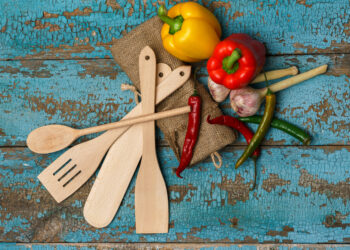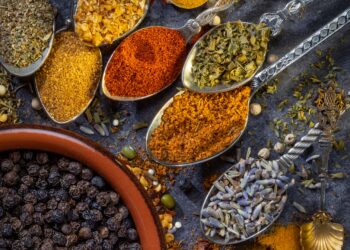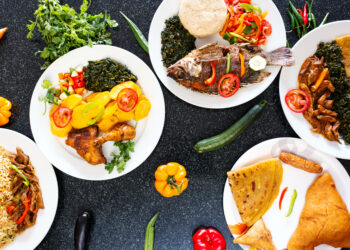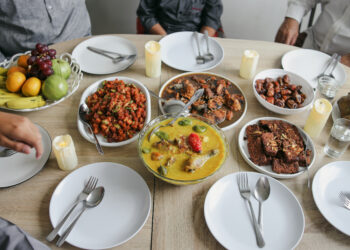Proud to be Indo-Caribbean — it’s more than just a heritage line we drop at cultural festivals. It’s a layered identity born from history, spiced with resilience, and seasoned daily with cultural negotiation. For those of us raised between the masala of Trinidad or Guyana and the drizzle of the UK, the phrase carries generations of migration, adaptation, and pride.
But what does Indo-Caribbean identity in the UK truly look like in 2025? At a time when cultural identity is shaped as much by social media as it is by tradition, and family WhatsApp chats swing from soca remixes to samosa recipes, it’s worth pausing to reflect on how our Indian Caribbean heritage continues to grow, and how we carry it proudly in the way we speak, celebrate, and cook in modern Britain.
From Ship to Sugar Cane: The Roots of Our Story
Let’s rewind a little. The Indo-Caribbean story begins with indentured labour — a chapter that often sits quietly in history books but loudly in our cultural memory. After the abolition of slavery in the British Empire, thousands of Indians were recruited (or, in many cases, coerced) into indentureship contracts to work on sugar plantations across the Caribbean.
Between 1838 and 1917, over half a million Indians — mostly from what’s now Bihar and Uttar Pradesh — were shipped across the Kala Pani (black waters) to colonies like Trinidad, Guyana, Suriname, and Jamaica. They carried with them little more than a few seeds, religious icons, a deeply rooted work ethic, and their languages: Bhojpuri, Hindi, Tamil and Urdu.
In the hot Caribbean sun, these roots took hold. Over generations, we built temples, created chutney music, fused roti with rum, and learned to speak patois as fluently as we recited the Hanuman Chalisa. Indian culture didn’t just survive, it evolved, blending with African, European, and Indigenous influences into something beautifully unique: Indo-Caribbean identity.
Coming to the UK: Curry, Cold Weather, and Culture Shock
For many families, the journey didn’t end in the Caribbean. In the post-Windrush decades, Indo-Caribbeans began arriving in Britain, some chasing better economic opportunities, others escaping political instability in Guyana or Trinidad. What they found, however, wasn’t always a warm welcome.
Imagine going from Port of Spain to Peckham, or Berbice to Birmingham — your accent confuses people, your name gets butchered at school, and your food smells “different” in the communal flat. But you adapt. You blend your doubles with chips, find kindred spirits in Jamaican takeaways, and start Friday curry nights that become neighbourhood staples.
For children of these migrants, like many of us now in our 20s, 30s and 40s, growing up in the UK meant constantly juggling identities. Too Indian for the Black British crew. Too Caribbean for the Desi crowd. Too British for your grandparents. It was like walking a cultural tightrope in school shoes from Clarks.
But despite the confusion, or maybe because of it — we grew proud. Proud of our pepper roti and our Bollywood basslines. Proud of our multigenerational homes where elders prayed with mala beads while grandchildren recited Stormzy lyrics. Proud of speaking three registers of English in one sentence: Creole to your cousin, Queen’s English to the bank teller, and slang to your bredrin.
Fusion Without Confusion: Owning the Hyphen
In 2025, being Indo-Caribbean in the UK is no longer about apologising for complexity. It’s about owning it.
We’re no longer asking, “Where do I fit in?” We’re saying, “I make my own lane.” The hyphen between Indian and Caribbean isn’t a minus sign. It’s a bridge. It connects biryani to bake, bhajans to bassline, Diwali to Notting Hill Carnival.
Today, you’ll find Indo-Caribbean Brits everywhere, launching UK supper clubs that serve curry goat, dal puri, tacos and curating museum exhibitions on indenture history, rapping in Creole with tabla samples, or running for council with campaign posters in Hindi and patois.
Social media has helped immensely. Instagram reels have turned roti-making into performance art. TikTok creators break down the difference between Guyanese curry and Punjabi curry with comic precision.
In short, our identity has become visible, proud, and a little trendy.
Food as Identity: More Than Just Curry!
Let’s not pretend food isn’t at the heart of our identity. For many of us, the smell of jeera chicken, the crackle of pholourie hitting hot oil, or the sight of coconut chokha on a Sunday still feels like a hug from your nani.
But Indo-Caribbean cuisine isn’t just about comfort. It’s resistance. Our grandparents weren’t given much — just rice, flour, and some spices they smuggled in their sari hems. What they created with that was nothing short of culinary jazz.
In the UK, our dishes have slowly made their way from home kitchens to market stalls, street food festivals, and, occasionally, Michelin-star menus. And as the British palate broadens beyond tikka masala, there’s a growing curiosity about Indo-Caribbean flavours: Achaar, Saijan, Sorrel, Plantain curry.
We’re not just serving food. We’re serving stories. Every dal puri tells a tale of migration. Every tamarind sauce holds ancestral heat. Every curry duck reminds us that joy, despite history, is still on the menu.
Challenges We Still Face
Let’s be real, it’s not all sunshine and roti. Being Indo-Caribbean in the UK still comes with its complications.
We often feel invisible in wider South Asian narratives. While Bollywood, bhangra, and Holi events are widely celebrated, Indo-Caribbeans often get left out of the Desi conversation.
Within the broader Black British community, Indo-Caribbean individuals can sometimes feel overlooked or misunderstood. Our cultural backgrounds are often unfamiliar, and our histories less widely recognised. Even official classifications struggle to capture our identity — with census categories like “Asian other” or “Mixed” failing to fully reflect our unique heritage.
There are also generational differences to navigate. Many of us were raised by grandparents whose values were shaped by traditional Indian customs, expressed within a Caribbean cultural environment, and further influenced by British societal norms. This blend of expectations could sometimes feel conflicting, creating a complex framework of guidance that shaped our upbringing in subtle but significant ways.
In 2025, these tensions are being addressed more openly. Conversations are emerging through spoken word performances, academic discussions, cultural events, and community platforms such as Indo-Caribbean UK. Second-generation Britons are increasingly creating spaces to share their experiences and challenge feelings of exclusion.
Passing It On: Indo-Caribbean Identity and the Next Generation
One of the most important questions we now face is: How do we pass on this hybrid identity to future generations?
Many of us are raising children in multi-ethnic, mixed-heritage families. Some are partnering with West Africans, others with white Brits, Desis, Latinx, or fellow Indo-Caribbeans. The challenge isn’t about enforcing “authenticity”, it’s about telling the stories. The story of why we fry eggplant the way we do. Why we light diyas in October?
In a world increasingly interested in roots and representation, Indo-Caribbean parents are writing children’s books, launching YouTube series, and documenting family histories, because we know that without storytelling, identity fades. And ours is far too rich for that.
What Does Indo-Caribbean Identity in the UK Mean in 2025?
Final Thoughts: Proud, Loud, and Still Cooking!
Indeed, being Indo-Caribbean is a source of pride — a reflection of resilience, heritage, and identity. It’s found in the way we speak, the depth of our traditions, the richness of our cuisine, and the histories carried within us.
In 2025, Indo-Caribbean identity in the UK is a living, dancing, seasoning thing. It’s not static. It bends with each generation, absorbs new flavours, but always keeps its base.
And if you ever feel like explaining it all to someone is too much? Just invite them round. Plate up some curry and put on some Machel, and tell them the stories. Trust us — they’ll get it by dessert.
Have a story, memory, or reflection on what being Indo-Caribbean means to you? Or maybe a family tale, a festival tradition, or a cherished recipe passed down through generations? Share it in the comments and be part of our growing community of culture lovers, storytellers, and home cooks. For more diaspora reflections, heritage conversations, and flavour-packed content, stay connected at currybien.co.uk/.



















